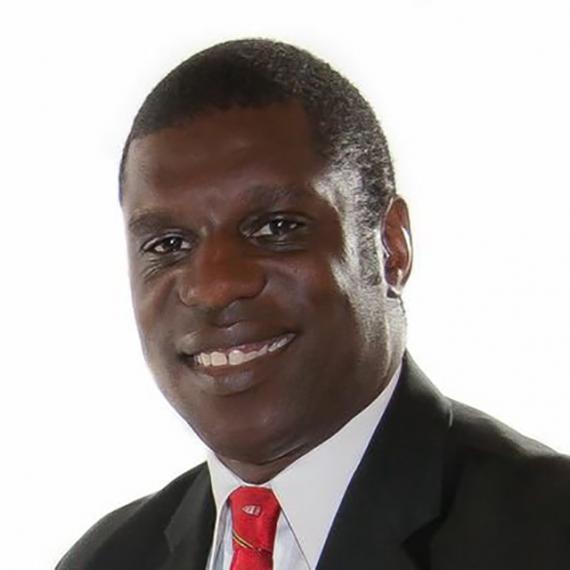
About Lawrence Goodridge
Dr. Lawrence Goodridge [1] holds the Leung Family Professorship in Food Safety in the Department of Food Science and is the Director of the Canadian Research Institute for Food Safety. The three-time U of G alumnus was recently announced as a member of the President’s Advisory Committee on Anti-Racism [2] (PACAR). PACAR will advise U of G leaders on addressing racism and discrimination in the University community, develop an anti-racism policy and promote anti-racism efforts. We recently chatted with Lawrence on the importance of this committee and increasing diversity on campus.
Why did you apply to join PACAR?
As a person of colour, unfortunately, I have experienced racism in my career, sometimes overtly in my face and other times more subtle in the form of microaggressions. This committee is a positive first step to tackling the lack of diversity on campus. When the George Floyd incident occurred last May several institutions, including the University of Guelph, put out statements in support of equity, diversity, inclusion, and anti-racism. While I am supportive of that statement, I wanted to ensure there would be actions as well. In joining this committee, I hope to facilitate those actions.
Many students who are visible minorities experience racism. There is a lack of mentors that belong to the same ethnic or racial group as them. This can translate to unsuccessful educational careers. So, over the years I have tried to be a mentor to students of colour. There are practical things we can do right now to address racism and diversity on this campus. I believe there are actions we can take to improve the presence of diverse groups on campus and if we can do that then that will be a positive step in reducing racism.
Let’s talk a bit more about the importance of representation and mentorship.
I have had several mentors, throughout my career, but none of them are Black. That is because there aren’t many, if any, in my field. When I look at my White peers, they’ve had White mentors. This opens doors and opportunities, like obtaining awards or collaborating on research grants. These are opportunities that members of visible minority groups tend not to have.
I recently read an article about the Order of Canada and most of the recipients are still White males. Women recipients are becoming more frequent, but are still behind. And members of racialized groups, including Indigenous peoples, are almost non-existent. There are many Black, Indigenous, and other academics belonging to ethnic minorities that have greatly contributed to the development of this country. They deserve to have their accomplishments recognized. However, it always seems contrived. We create these committees and say we are going to “right what is wrong”. When it comes to giving awards to White students or White professors it is such a natural act. We need to get to a place where it’s natural to recognize the accomplishments of visible minorities. One of the ways to do that is to increase the diversity on campus.
How does your work in food safety connect to equity, diversity and inclusion?
With respect to food safety, it deals with risk associated with food and food borne pathogens. A person’s culture plays a big role in food safety because it dictates the types of food they eat. We know different cultures have different food production processes and some of these processes are riskier than others. For example, in the Hispanic or French communities there is a tendency to eat cheeses and other foods made with unpasteurized milk, which is a major food safety risk. We also know if you want to reach a particular ethnic group and educate them about best food safety practices, the way to do that is through someone of the same group. Because people trust those who look and behave like them.
With respect to me and Black culture, there are several food preparation methods that are risky and yet we don’t see a lot of Black researchers in food safety. So, there is no one to go to these communities to educate and discuss food safety risks and solutions. This is why we need to increase diversity in food safety. Canada is a country of immigrants and as more people immigrate to Canada, they bring other foods with them, some we haven’t seen before. Those can be combined with Canadian foods, to make new foods and it opens the door to new safety risks. Understanding all of that and being able to respond in a way that people will listen is important to increasing food safety in Canada and across the world.
What advice do you have for students considering a similar career path as you?
- Follow your heart. It must be something you’re motivated to do.
- Find a professor that you really connect with. I’ve had those and I credit them with where I am today. Talk to them about why they entered this profession and ask about their challenges and barriers to success.
- Do a lot of reading; reading is key.
- Immerse yourself in the scientific discipline you are interested in.